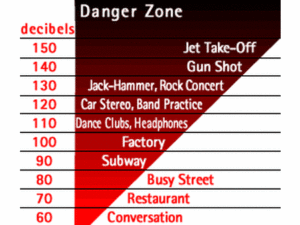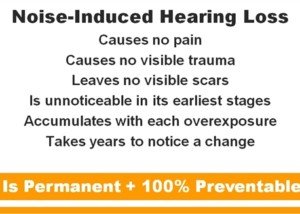Trying to get your blood pressure down and nothing works? Are you in loud environments a lot and don’t use ear protection?
It’s unbelievable how many people in this day and age STILL do not wear earplugs or ear muffs to guard their ears from loud noise – especially occupational noise such as that from factories, wood chippers and chainsaws, vehicular engines and construction.
I wonder how many have high blood pressure for which improvements in diet and the taking of medications have not been effective.
A Study of Power Loom Weavers
A study presented at the ACC Asia 2024 conference sheds light on a concerning issue for power loom weavers exposed to chronic noise.
It turns out that constant exposure to loud sounds not only affects their hearing but can also significantly raise blood pressure.
The study found that each year of working in noisy conditions increased the chances of developing high blood pressure by 10%.
Golam Dastageer Prince, the lead author and a medical officer at DGHS Bangladesh, explained that while the exact process isn’t fully understood, it’s believed that the body’s stress response to ongoing noise could lead to hormonal imbalances.
These imbalances might cause a steady rise in blood pressure over time.
High blood pressure (hypertension) is a serious concern, affecting over a billion people worldwide, with many struggling to keep it under control.
Prince emphasized that addressing noise exposure is crucial for lowering cardiovascular risks in workers, alongside treating any existing high blood pressure.
The research was conducted among 289 adult workers in weaving factories in Narayanganj, Bangladesh, from January to December 2023.
The study team collected data through interviews and measurements, including blood pressure, height, weight and noise levels.
The workers, who were mainly male and averaged about 34 years old, had been exposed to noise levels between 96 and 111 decibels. A dB is a unit of sound volume.
For comparison, the National Institute for Occupational Safety and Health in the U.S. suggests that noise exposure should be limited to 85 decibels over an eight-hour workday to avoid health risks.

Surprisingly, none of the workers were using ear protection.
The study found that 31.5% of the workers had high blood pressure, and another 53.3% were on the brink of hypertension.
Moreover, the study showed a clear link between longer exposure to noise and higher blood pressure.
For every additional year exposed to the noise, the odds of developing high blood pressure increased by 10%, even when accounting for other factors like age, body mass index and smoking.
Prince pointed out in the study paper that this issue isn’t just about hearing loss but also about how noise can impact overall health.
Interestingly, while this study focuses on industrial noise, other research has shown that living near sources of noise pollution like highways or airports can also affect cardiovascular health.
However, the noise in this study was constant and intense, unlike the more fluctuating noise from everyday life.
Even in the U.S., the wealthiest nation in the world, the masses of people remain ignorant of just how damaging prolonged and frequent exposure to loud noise is.
And it doesn’t matter what the source of the noise is, whether it’s machinery or blaring classical music.
I’ve been going to gyms for years and still remain one of the VERY few patrons who uses earplugs, and I can honestly state that I’m the only person I’ve ever observed using industrial-grade noise cancelling headphones at gyms – the kind that hunters use.
There’s still a stigma about using ear protection – which is really unfortunate because chronic exposure to loud noise has been clearly linked to not just hearing loss, but also cardiovascular problems.
 Lorra Garrick has been covering medical, fitness and cybersecurity topics for many years, having written thousands of articles for print magazines and websites, including as a ghostwriter. She’s also a former ACE-certified personal trainer.
Lorra Garrick has been covering medical, fitness and cybersecurity topics for many years, having written thousands of articles for print magazines and websites, including as a ghostwriter. She’s also a former ACE-certified personal trainer.
.










































